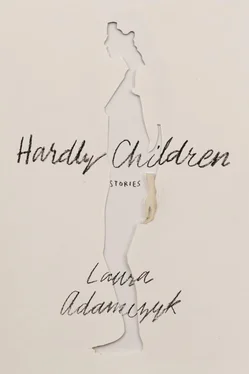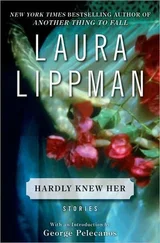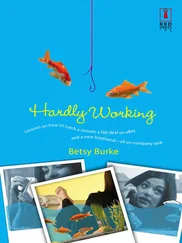Remember that counter to if gun, then fire runs the deeper, truer maxim that only unrequited love can be romantic. The gun must be away from us, unfired, incomplete, unsatisfied, in order to hold any kind of love potential. That’s why we must keep the bullets inside.
Know that you may go through acts one, two, and three without ever having a gun, let alone the gun you love, fire a single bullet in your direction. This will create sympathy or its uglier, more honest cousin, pity, for you in your readers, though some, no matter how subtle your rendering of your unrequited love pain, will still think you’re a sad sack who shouldn’t be in love with a gun to begin with and certainly not a gun who already has a girlfriend.
And so if there’s a gun in act one, put the gun to your temple in act one, finger smoothing the trigger, just to see how that feels. Just to see how you might act in subsequent acts. Just to see how one act might lead to another.
If there’s a gun in act one, pry it out of your cold dead hand in act three, but not until late in the act when your hand will have clawed especially cold and especially dead around the gun. Snap your fingers off if need be. Let the story be about your hand not wanting to ever let go.
If there’s a gun in act one, let act three be so far away that the gun rusts, jams, seizes, so that it’s no more useful than a rock, which is similar in size and weight to a fist, the size and weight of a man’s heart, which is a pretty good thing to kill someone with.
If there’s a gun in act one, let its firing in act three become so inevitable as to become predictable. Let the inevitability become a hum over which the real story is laid, let the inevitability be like the dog’s bark echoing throughout the neighborhood, but not close by, not even one door down, not so annoying and disruptive that you need to do something about the dog, not so disruptive that you need to take care of the dog, i.e., take the dog out of its yard in the middle of the night, drive it out of town, tie it to a tree, etc.
Despite knowing that if gun, then fire , despite knowing that it’s not just inevitability but persistence, a kind of insistence, a drive and purpose like gravity, know that if gun, then fire will outlive you, know that if gun, then fire might even kill you. Nonetheless, grind your wheels, if only a little, against if gun, then fire . You might, for example, take the gun somewhere you’ve never been before in act two. You will have to drive or walk or bike (you cannot fly with a gun; they do not allow it in carry-ons and we don’t have time for checking bags). For example, you might drive or walk as far east as you can go. Which means, eventually, depending on where act one begins, hitting a mountain, an ocean, a cliff. Take the gun, and assuming it’s still a gun, throw it as far as you can throw it. Loosen up your arm, rear back, make it a good one. Keep the bullets inside it. At the edge of the water or cliff, the top of the mountain, the bubbling mouth of the volcano, you may see others doing or just having done the same thing. Give a nod, perhaps even do a secret hand signal—a tug of the ear, a swipe of the nose—but say nothing. Do not smile. Do not congratulate yourself or the others for the long journey to the gun’s obliteration. This is something you and the others should have done a long time ago, long before act one even began.
If the gun in act one has become a banana in act two, let the gun, instead, be a banana clip. Something plastic, built to break, something that went out of style in the mid-nineties. Something that people now only wear ironically. And so let the banana clip be a kind of joke that cannot hold up to the weight of scrutiny, the roll of our collective eyes.
If there’s a gun in act one, and in act two or three the gun is no longer a gun, then fire it—that is, discharge it—for not holding up its end of the bargain.
If in act one the gun has become a banana, use the banana to kill as many children in the school as possible. Show up hours or days or weeks in advance and plant the banana and dozens of other bananas in hidden corners of the school, where they will eventually (at some point in the now distant-seeming act three) rot and cause a horrible smell to disseminate throughout the school, thick as smoke, sending the teachers and children and lunch workers pouring out of the building like vital fluid from a wound, pinching their noses or the noses of their friends.
Give the parents, the teachers, perhaps even one child the chance to say, We were supposed to be having our science fair today. It was such a fun, exciting thing we were going to do. But now this. I guess we’ll have to have the science fair tomorrow or the next day. We’ll just come back tomorrow.
If this, then end the story now, leave the children looking ahead to, but not quite getting, the science fair. This will put them in a state of insecurity (What if the same thing happens tomorrow? What if there are more bananas?) but also of hope, which is a good state in which to leave things—that is to say complicated, perhaps only slightly wiser, potentially, probably a little sadder than before.
But if you’d like to raise the stakes, if you’d really like to make the story worth telling, send one kid to the emergency room because they thought he was having an allergic reaction to the bananas. Instead have it turn out that he had begun hyperventilating on account of pinching his nose too tightly. Let it be a mistake. Let it just be that everyone is overreacting to the incident with the bananas.
If the gun in act one has become a banana in act two, keep one banana—a last-resort banana—tucked into the back of your jeans with your shirt pulled over top. When all the other bananas have spoiled, have split their soft guts onto the floor, peel the banana, put your finger on the trigger of the banana, and force the remaining children and teachers closest to you to each take a bite. They might turn their heads or even begin to cry for the awkwardness of something shoved into their mouths, but just do it. Bananas are for eating, and so make them take as many bites as they can, but, and this is important, be sure to save the last bite for yourself. It is, after all, your banana.
In order to erase ourselves in act one or two or three, to make disappear the men behind the gun, if there’s a gun in act one, give everyone a gun in act one. Let it be assumed that all men and women are gunned, holding, packing. So in act three when guns are drawn, yours pointing at his, his pointing at hers, hers pointing at hers at yours, it will be no surprise. It will be a given that those guns were there all along, and so if gun, then fire will serve as a least common denominator for our stories, the point from which we start all stories, as lan guage, as body, as breath, as the clearing of a throat just before speech.
Because it will sometimes be satisfying for people to say, Yes, he was always strange. Always standoffish. Antisocial. He always was. For them to say, His family always did love bananas.
It will also be satisfying to say the opposite. To insert, despite If gun act one, then fire act three , the baffled character of ourselves, the tortured mother, the ravaged sister survivor standing in the parking lot, saying, I never in a million years. I had no idea. You just cannot predict something like this.
THEY PUSH HOOKS THROUGHthe man’s calves, back, and arms and hang him from the gallery ceiling. Skin pulled to points, skin stretched like bats’ wings. It’s called the Superman pose: facedown, body spread out thirty feet in the air. Adam doesn’t understand the physics of it, why his skin doesn’t tear, though he knows it has to do with the number of hooks. In this pose, he needs eight. Guy, the man who suspends him, says that some people in different poses can get away with only two; it all depends on their skin.
Читать дальше











